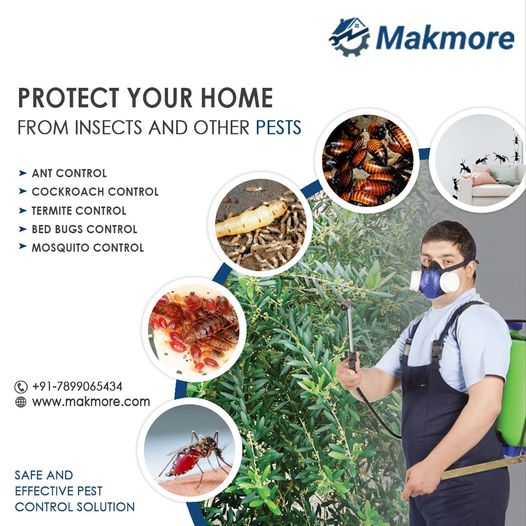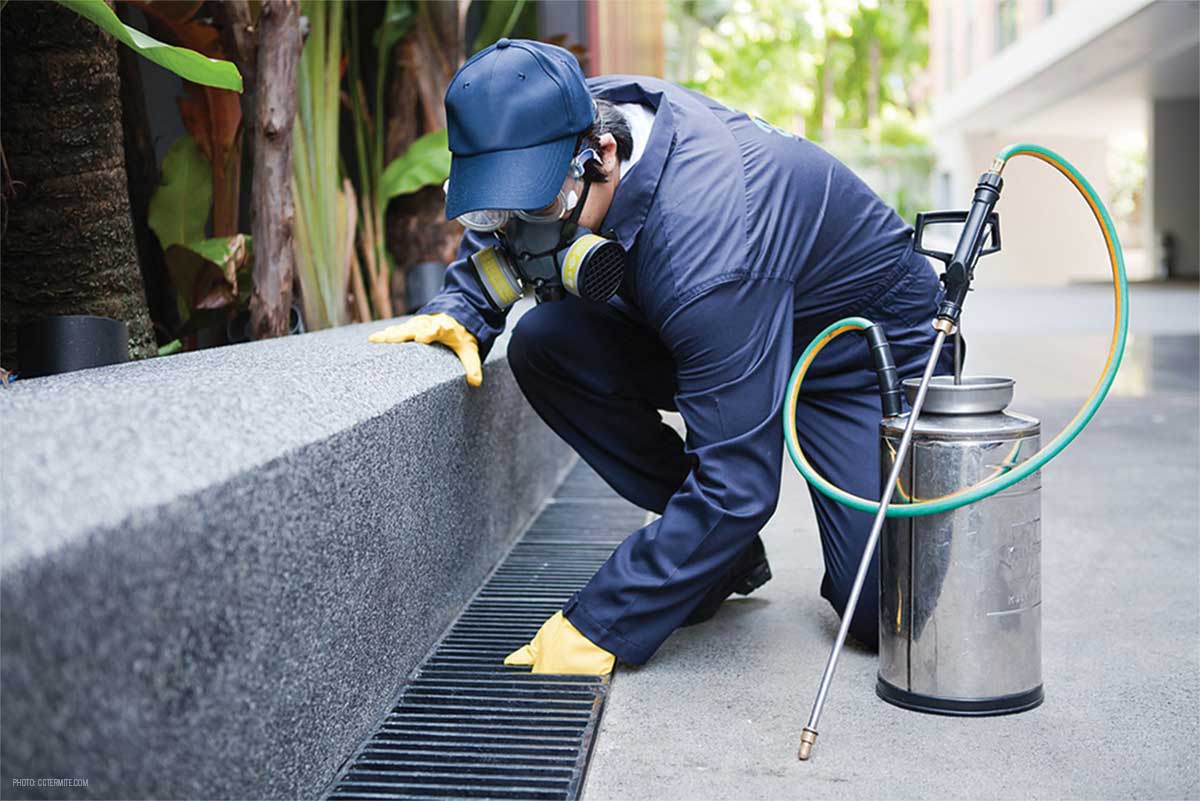Pest Control Auckland: Trusted and Reliable Solutions for each Pest Concern
Pest Control Auckland: Trusted and Reliable Solutions for each Pest Concern
Blog Article
Comprehending Different Kinds Of Parasite Control Techniques and Their Efficiency
When considering insect control approaches, it is necessary to recognize the diverse strategies available and their varying degrees of efficiency. By exploring the nuances of these insect control methods, a detailed understanding of exactly how to address parasite issues can be established.
Chemical Bug Control Approaches
Chemical insect control techniques play an essential function in successfully handling and eliminating pest problems in numerous environments. These methods involve using chemical compounds to get rid of or hinder bugs such as pests, weeds, and rats. One of the key benefits of chemical parasite control is its ability to give quick and targeted remedies to pest issues. By making use of details chemicals that are developed to target specific bugs, this method can assist avoid damage to plants, frameworks, and human wellness.
Nevertheless, it is necessary to consider the potential risks and disadvantages connected with chemical bug control techniques. Overreliance on chemicals can result in the development of chemical resistance in parasites, making them tougher to manage over time. In addition, using specific chemicals can have unsafe results on non-target microorganisms, the environment, and human health if not applied appropriately.

Biological Parasite Control Approaches
Making use of all-natural predators and pathogens to handle pest populaces effectively, biological parasite control techniques provide a sustainable and environmentally friendly strategy to pest monitoring. By introducing or promoting the activity of organisms that normally take advantage of or infect bugs, such as ladybugs for aphid control or certain microorganisms for caterpillar problems, biological control can help preserve insect populations at manageable levels without the requirement for synthetic chemicals. This method is particularly useful for chemical-free farming practices, as it avoids making use of potentially dangerous materials while maintaining plant health.

Physical Insect Control Approaches
While biological insect control approaches concentrate on taking advantage of all-natural killers and microorganisms, physical insect control approaches utilize physical and mechanical barriers to manage bug populations. These methods are typically considered eco-friendly as they lessen the usage of chemicals. Physical parasite control includes techniques such as capturing, using barriers like internet or screens, and physically removing insects from the location.
Traps are typically made use of in physical bug control to record and remove insects like insects and rats. These catches can be baited with food or scents to attract the parasites, leading them to a contained area where they can be easily gotten rid of. One more physical approach is using obstacles such as fencings, webs, or screens to protect against pests from entering or infesting specific locations. Setting up fine mesh displays on windows can help keep out insects and flies. Pest Control Auckland.
All-natural Parasite Control Methods
Integrating all-natural killers and plant-based repellents is a key method in applying reliable natural parasite control approaches. By urging the existence of advantageous insects like ladybugs, lacewings, or predatory termites, garden enthusiasts can normally control pest populations. These killers prey on typical yard insects such as aphids, caterpillars, and mites, helping to preserve a balanced environment without the requirement for chemical interventions.

Moreover, applying cultural methods such as plant rotation, companion planting, and preserving proper plant health can also enhance the performance of natural bug control techniques. These strategies not only aid in stopping bug invasions but also advertise biodiversity and total ecological community resilience. By incorporating these natural approaches, individuals can properly handle parasites while minimizing environmental impact.
Integrated Parasite Administration (IPM) Method
Implementing an Integrated Insect Monitoring (IPM) method is essential for efficiently regulating bug populations while reducing dependence on chemical pesticides. IPM is a thorough and sustainable method that integrates numerous parasite control approaches to attain long-term options. This strategy concentrates on surveillance, control, and avoidance to resolve insect problems in an environmentally friendly fashion.
IPM integrates biological, cultural, physical, and mechanical methods with the minimal and strategic use pesticides when necessary. By highlighting aggressive steps such as environment adjustment, biological control, and exclusion, IPM aims to minimize pest populaces and their impact on the ecological community. Routine tracking is essential in IPM to evaluate insect levels properly and identify the most appropriate find more information control methods.
Among the key advantages of IPM is its capability to reduce the dangers related to extreme pesticide usage, such as ecological contamination and harm to non-target organisms. Additionally, IPM advertises a more alternative technique to pest monitoring by considering the general ecosystem characteristics. In general, the IPM strategy uses a lasting and effective remedy for parasite control while promoting environmental obligation.
Conclusion
In verdict, understanding the various kinds of parasite control approaches and their effectiveness is vital in effectively managing insect problems. Integrated Parasite Monitoring (IPM) approach, which incorporates different approaches for sustainable pest control, is significantly being recognized as a ecologically friendly and alternative remedy.
Chemical pest control methods play a crucial duty in successfully handling and eradicating pest problems in numerous environments.Making use of natural killers and microorganisms to handle parasite populations efficiently, organic pest control techniques offer a green and lasting approach to pest administration. By presenting or promoting the task of microorganisms that normally prey on or infect bugs, such as ladybugs for aphid control or certain microorganisms for caterpillar problems, biological control can assist preserve pest populations read the article at convenient degrees without the requirement for artificial chemicals.While organic pest control techniques concentrate on utilizing natural predators and pathogens, physical insect control techniques use mechanical and physical obstacles to manage bug populaces. Integrated Parasite Administration (IPM) technique, which integrates numerous techniques for sustainable parasite control, is increasingly being recognized as a eco friendly and alternative option.
Report this page